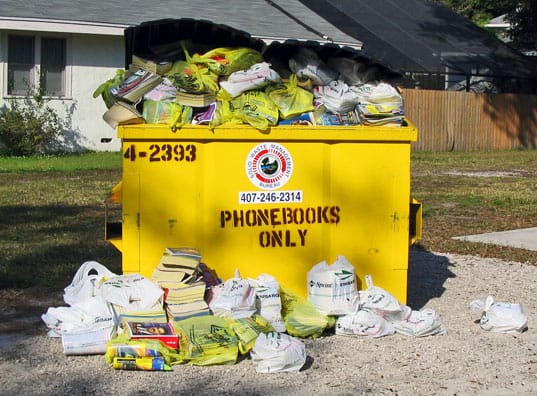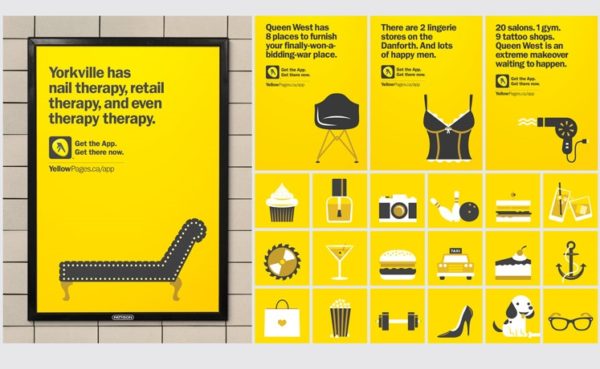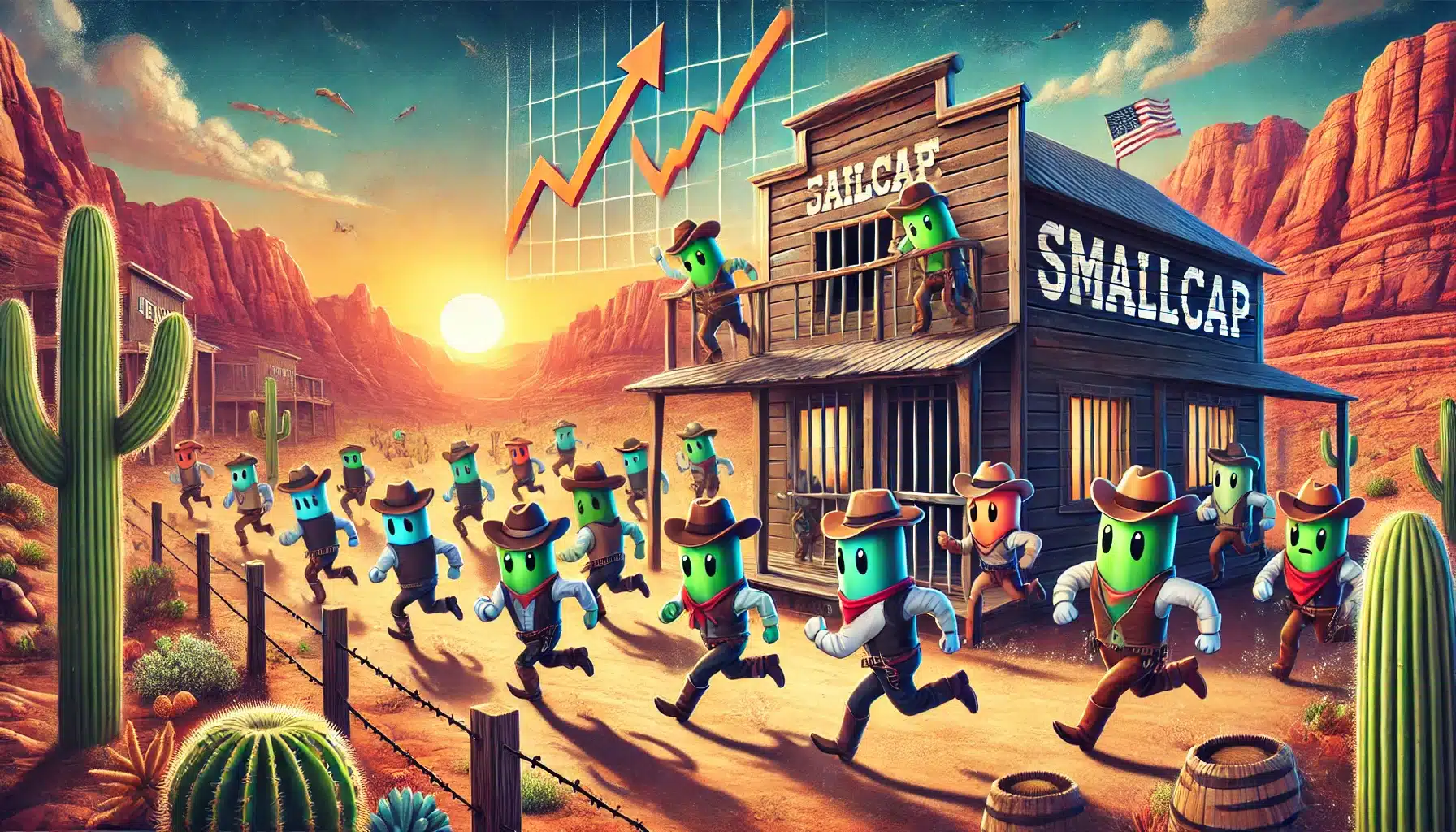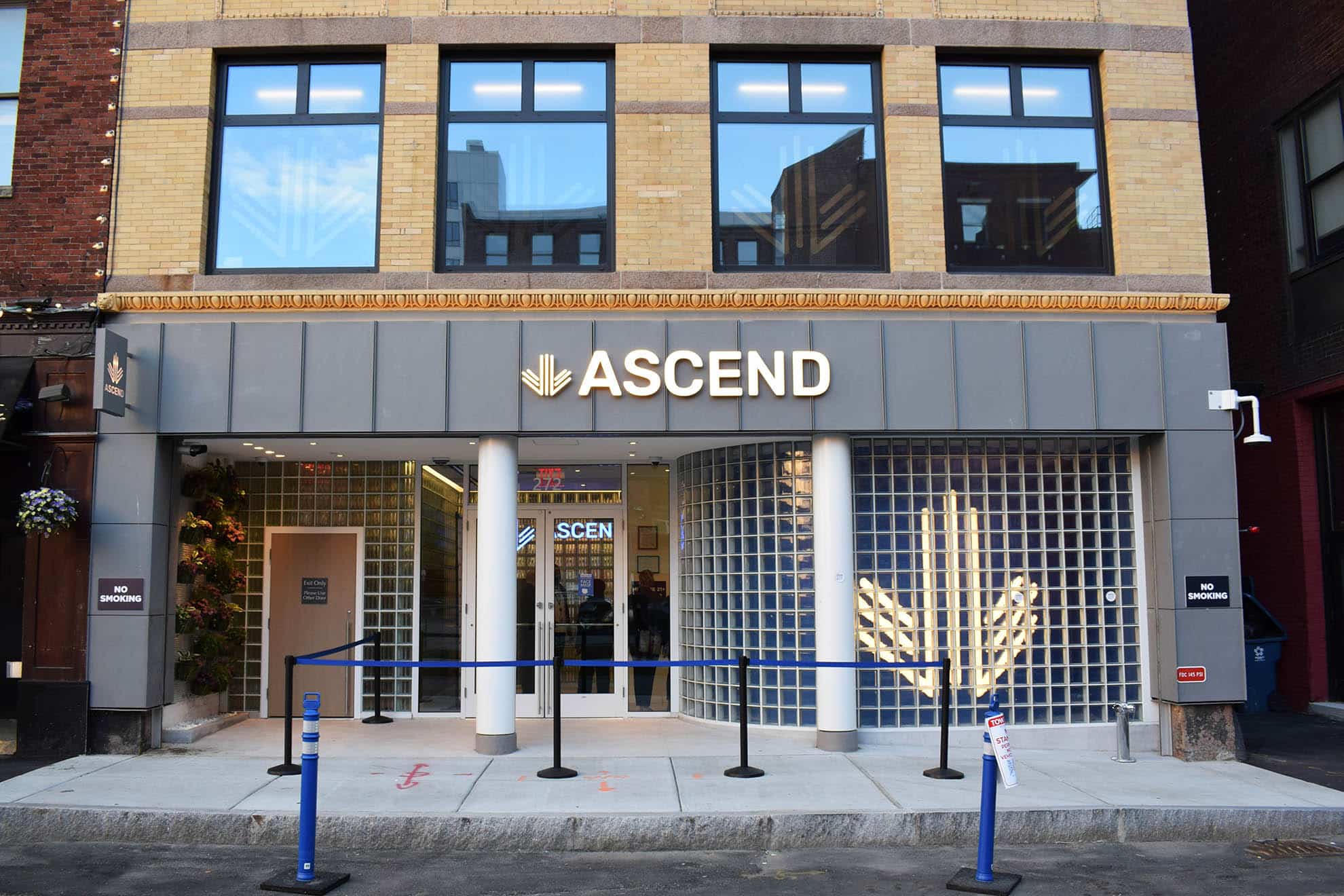

Residents of Thunder Bay are the latest Canadians to get a new pared down version of the Yellow Pages in their mailbox.
The new books, which measure “7×9” inches instead of the traditional “9×11”, are being made smaller because consumers are used to dealing with “tablet sized items”, says the company.
But why, in the age of instant anything on your mobile phone, do the Yellow Pages exist at all? After all, about three-quarters of Canadians now have a smartphone, and even old feature phones can be used to conduct a basic search. Isn’t it better to just access the Yellow Pages online?
Yellow Media spokesperson Fiona Story defended the physical directories recently, claiming that many who live in rural areas in Canada still have unreliable internet connections and that many businesses do not have websites.
“We are seeing shifts in terms of the number of customers that might prefer our digital products over our print products,” she told the CBC recently. “That being said, print still does have a user base, as well as a customer base, from small businesses that rely on it to reach their clients. The directory absolutely has a future, and it’s something that will always be part of our product portfolio.”
At the same time Yellow Media is defending the physical offering that made its name, its is aggressively paring it back. Earlier this year, the company began to scale down the delivery of phone books, targeting only communities and street where they are heavily used.
At the same time Yellow Media is defending the physical offering that made its name, its is aggressively paring it back. Earlier this year, the company began to scale down the delivery of phone books, targeting only communities and street where they are heavily used.
What’s driving this, of course, is money. Digital advertising made up more than half of Yellow Media’s total revenue for the first time recently, and the company wants to aggressively pivot to that.
Some see that transition as a plausible one.
“What makes Yellow Media attractive is that it’s substantially ahead of everybody else in the Canadian media space in terms of moving from print to digital,” said Canaccord Genuity analyst Aravinda Galappatthige. “As Yellow makes progress in its digital transition, we should see significant multiple expansion,” he added.
But others see signs of a much larger problem. The Yellow Pages brand skews old. Really old.
The history of the Yellow Pages goes all the way back to 1883 and was popularized by Bell and AT&T in the first half of the twentieth century. In the United States, neither the name nor the trademark “walking fingers” logo were registered as trademarks by AT&T or Bell, and are now freely used by several publishers.
Yellow Media is clearly dependent on the viability of the “yellow” brand, which extends worldwide and to the U.S. as “YellowPages.com”. The Yellow Pages U.K. is branded as “Yell”.
Search expert Mike Blumenthal has has been following the fall of physical phone books and transition to digital search for several years. Citing a recent consumer survey of on line search habits, he notes that “on the surface ” YellowPages.com showed up well, suggesting its transition to digital might be a success.
Yellow Media, which already owns Canada411.ca, and RedFlagDeals.com appears to be moving away from sinking all their eggs in the Yellow basket. In December, the company acquired digital reservation management systems Bookenda and local restaurant guide dine.TO.
But Blumenthal warns that lurking below YellowPages impressive “mindshare” showing was a troubling bit of data.
“YP.com shows their greatest strengths in the over 65 market where their print products are also still popular,” he noted. “The reality is that YP.com has not yet found a way to attract younger readers. Or even middle aged ones for that matter,” he noted.
Yellow Media, which already owns Canada411.ca, and RedFlagDeals.com appears to be moving away from sinking all their eggs in the Yellow basket. In December, the company acquired digital reservation management systems Bookenda and local restaurant guide dine.TO.
Many, many people have been predicting the death of the phone book for years. In 2007, Bill Gates said its outcome was all but sealed. “Yellow Page usage among people, say, below 50, will drop to zero—or near zero—over the next five years,” he said.
While some would argue that the last vestiges of what we are seeing is proof to the contrary, it seems clear that a smaller phone book is a pre-cursor to no phone book at all. Where is the phone book going? It’s the same place as video rental stores and newspaper stands and one-hour photo shops.
Leave a Reply
You must be logged in to post a comment.




 Share
Share Tweet
Tweet Share
Share




Comment